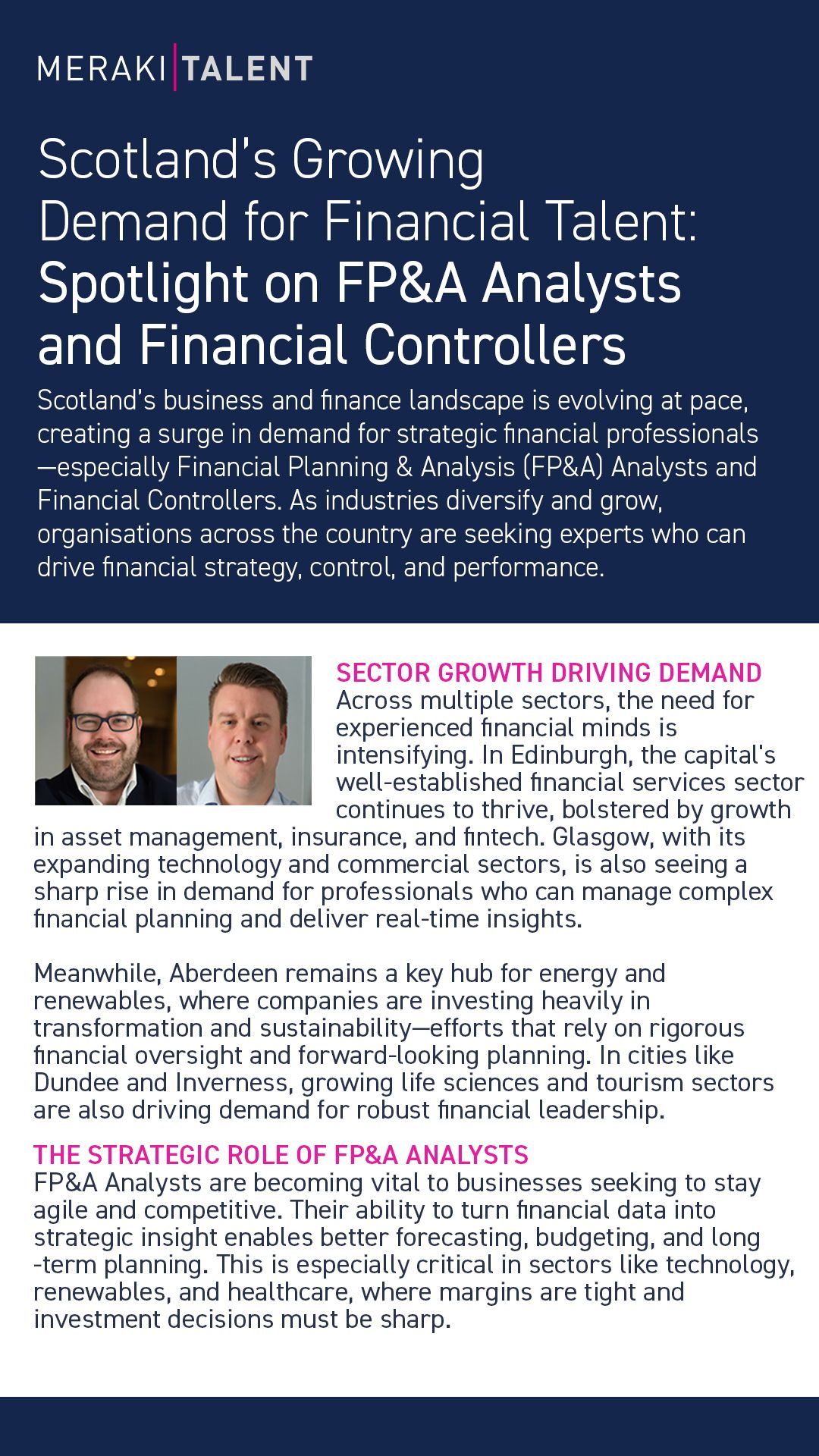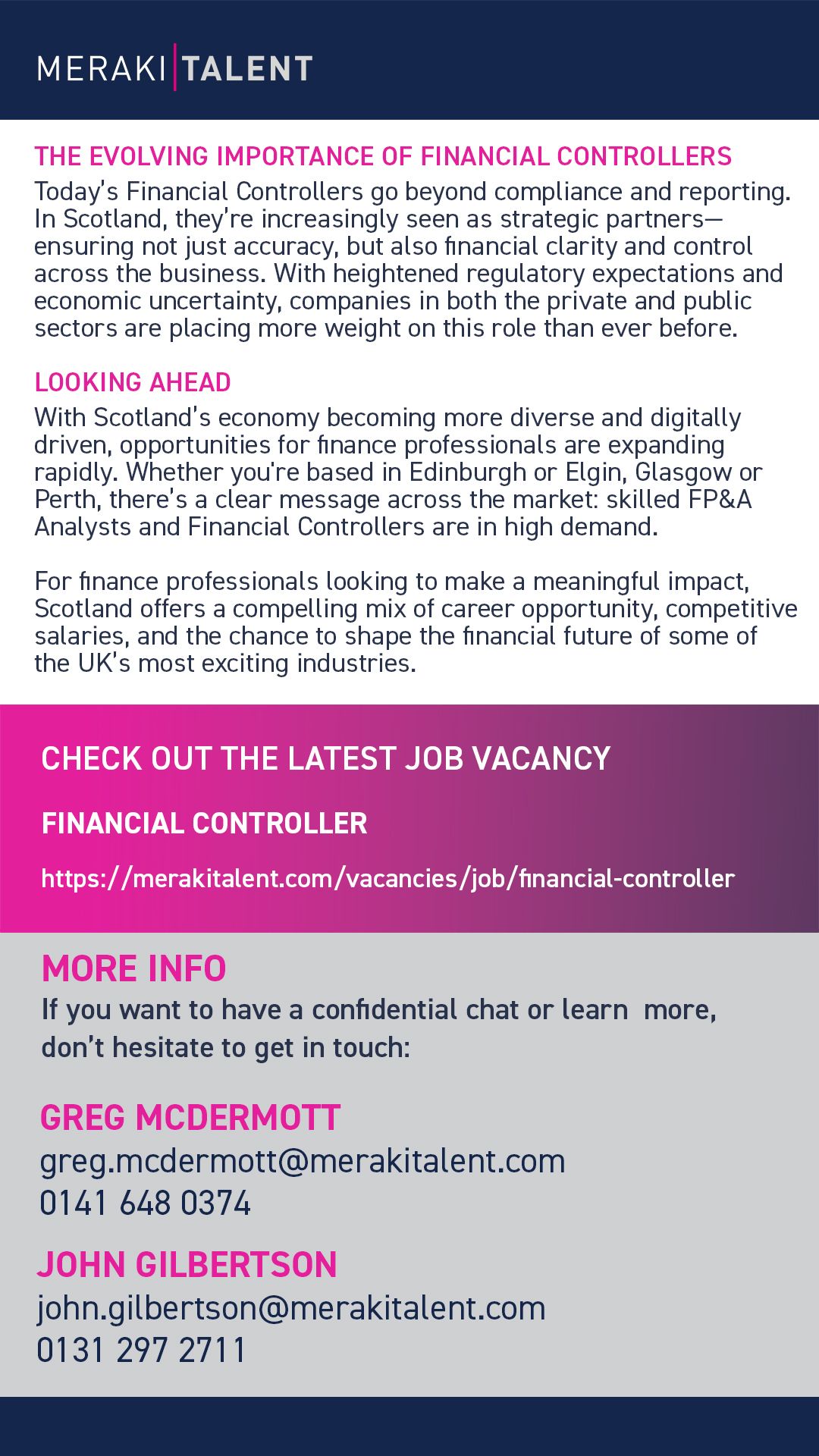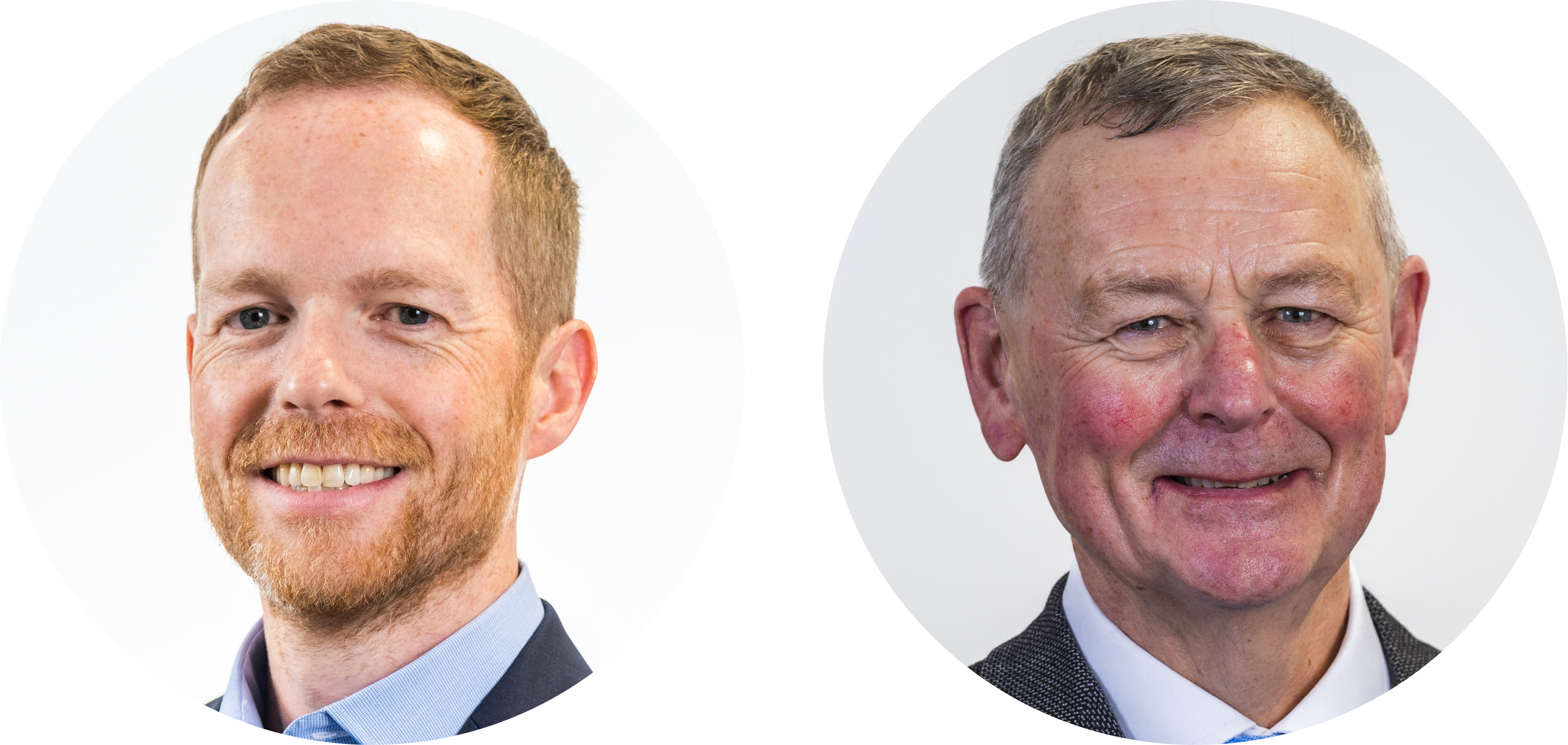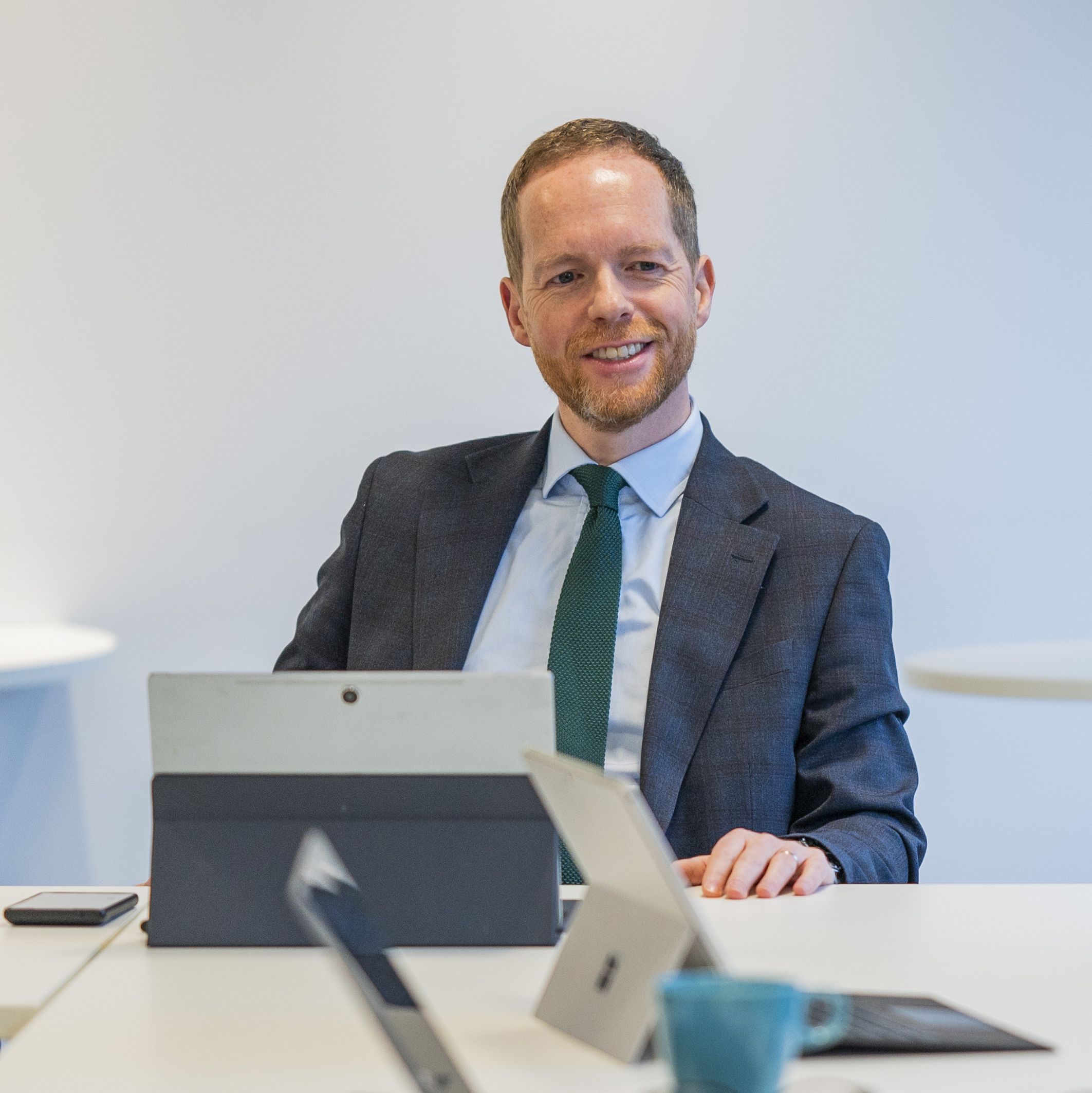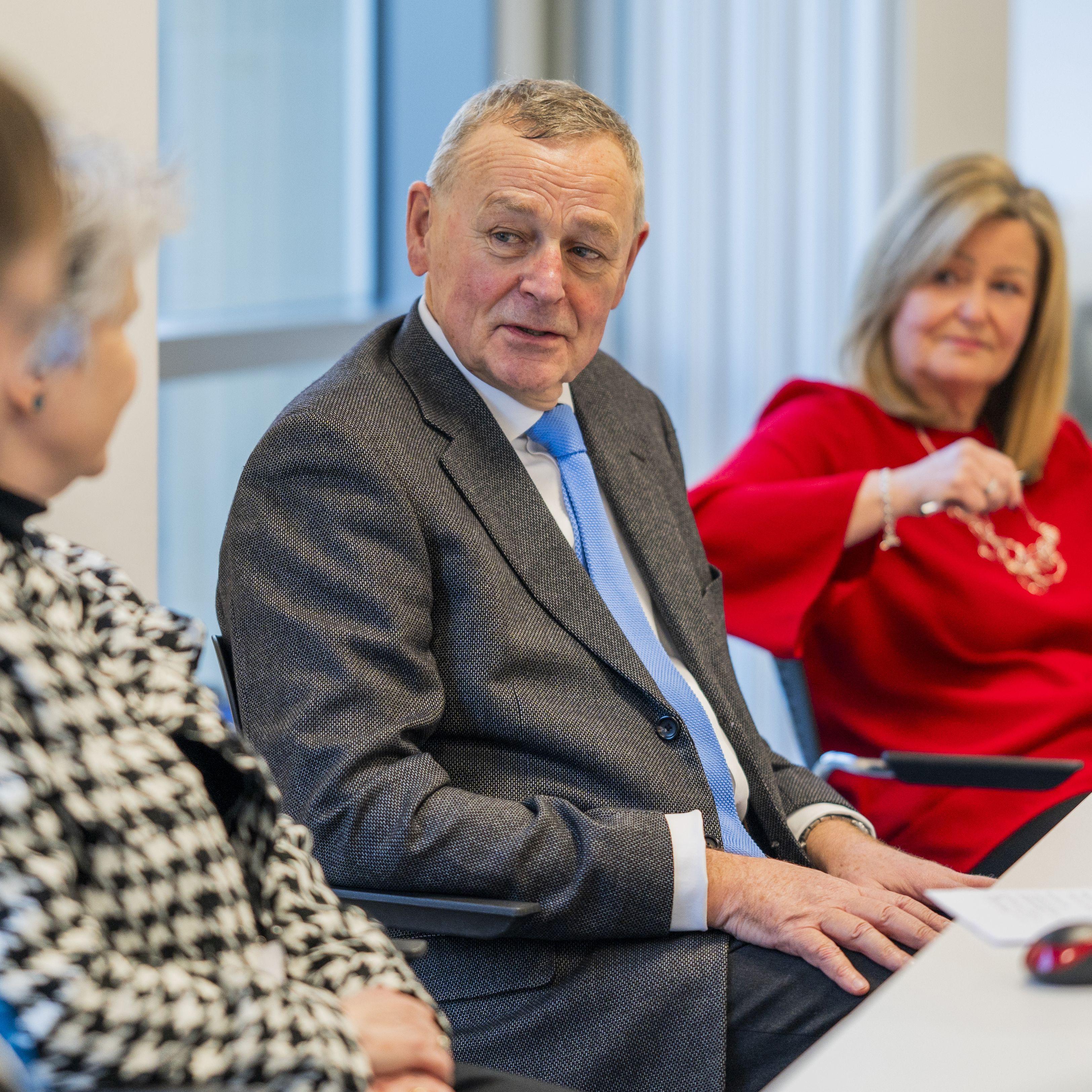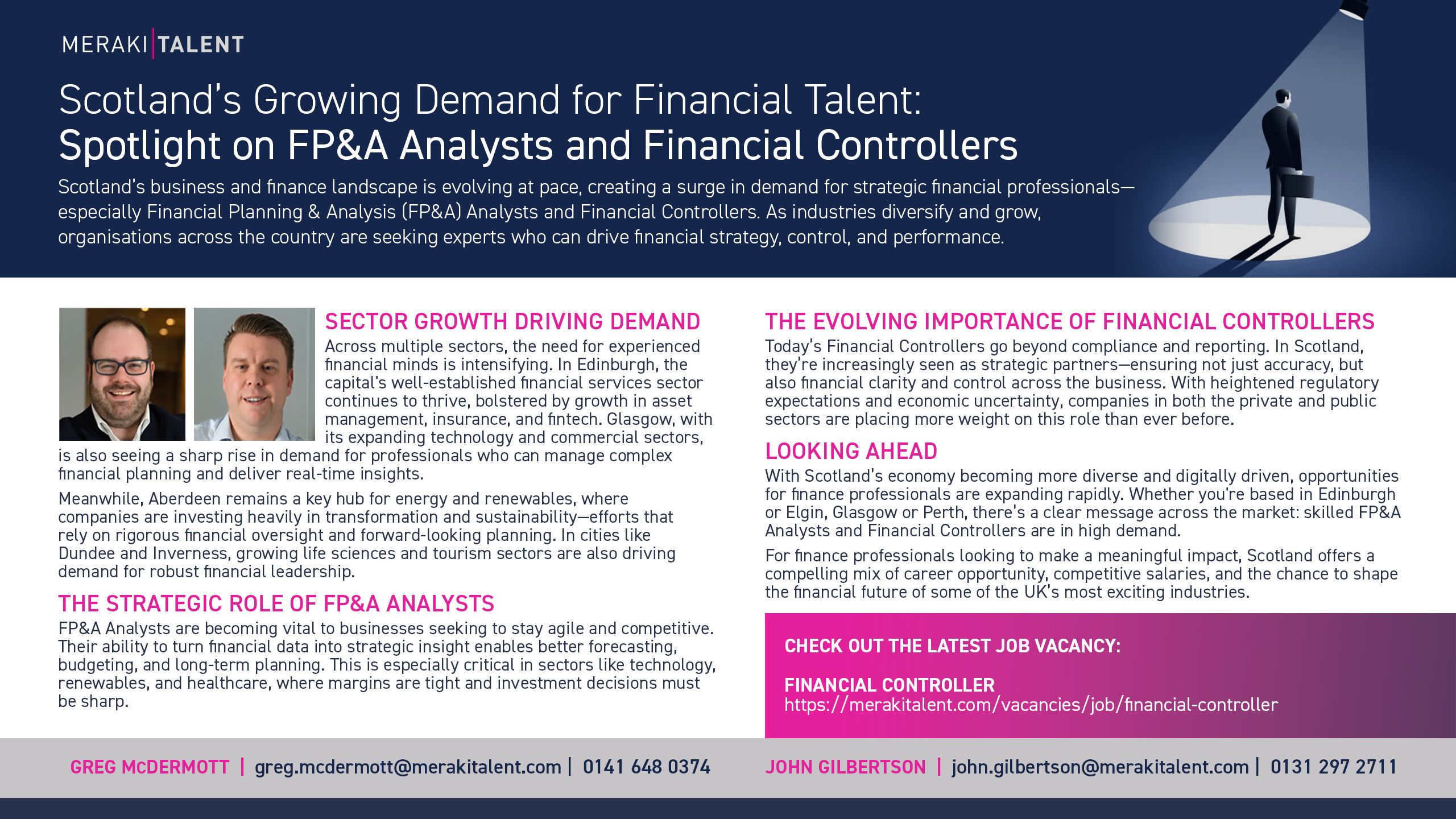Is Scotland getting
value for money?
As Auditor General for Scotland, Stephen Boyle has published several reports challenging the way public finances are used. He and Chair Colin Crosby CA tell Fraser Allen why their mission is to ‘make a difference to the people of Scotland’

Is Scotland getting
value for money?
As Auditor General for Scotland, Stephen Boyle has published several reports challenging the way public finances are used. He and Chair Colin Crosby CA tell Fraser Allen why their mission is to ‘make a difference to the people of Scotland’

As a football-loving schoolboy, the young Stephen Boyle dreamt of one day running out in a dark blue jersey under the Hampden Park floodlights. That’s yet to happen, but stepping into the public spotlight as Auditor General for Scotland was a dazzling experience of a different kind.
“I’d been working at Audit Scotland for seven years during my second spell here [Boyle was previously Senior Auditor in 2002, then an Audit Manager from 2004 to 2007], so I understood the organisation well, and had led audits of major public bodies,” says Boyle (above left). “However, nothing quite prepares you for the public nature of this role. I live a quiet life outside work – I’m content just walking the dog on the beach, and that helps me to strike a healthy balance.”
“More than anything, I want to bring a sense that public audit can make a difference to the people of Scotland”
Stephen Boyle, Auditor General for Scotland
Having graduated in accountancy and finance from the University of Glasgow, Boyle began his career at PwC, followed by his first spell at Audit Scotland and then senior finance roles with housing associations. He returned to Audit Scotland as Audit Director in 2013, later succeeding Caroline Gardner, who had completed her statutory eight-year tenure in the top role. But the timing of the promotion probably gave Boyle extra food for thought during his strolls on the beach.
“I was nominated by the Scottish Parliament in February 2020, which ended up being the last public event I attended before lockdown,” he says. “It was a strange time. However, Caroline remained in post, while I was ‘designate’, until June 2020. She gave me great insights into the less visible parts of the job.”
It’s a mission in which Boyle enjoys strong support from Colin Crosby CA (above right) – Audit Scotland’s Chair since autumn 2024 (and an NED since 2020). “Stephen’s been good from the start,” says Crosby. “I remember meeting up with him during a brief moment between lockdowns. We were talking about one of the more high-pressure reports and I said: ‘If you’re going to do this job, you’ve got to be prepared to upset some people.’ He gave me a look, but that’s the truth – you have to tell it like it is. And that’s one of Stephen’s qualities that I often hear praised from people outside Audit Scotland. They trust and understand what he says because he’s clear and honest.”
Parental payback
Crosby says he became fascinated by the world of business as far back as primary school, when he undertook a project about the engineering company GKN. “That sparked my early curiosity,” he says. “From there, I noticed that a lot of interesting people were CAs, which influenced me. However, after qualifying as a CA, I actually read law and became a lawyer.”
As a football-loving schoolboy, the young Stephen Boyle dreamt of one day running out in a dark blue jersey under the Hampden Park floodlights. That’s yet to happen, but stepping into the public spotlight as Auditor General for Scotland was a dazzling experience of a different kind.
“I’d been working at Audit Scotland for seven years during my second spell here [Boyle was previously Senior Auditor in 2002, then an Audit Manager from 2004 to 2007], so I understood the organisation well, and had led audits of major public bodies,” says Boyle (above left). “However, nothing quite prepares you for the public nature of this role. I live a quiet life outside work – I’m content just walking the dog on the beach, and that helps me to strike a healthy balance.”
“More than anything, I want to bring a sense that public audit can make a difference to the people of Scotland”
Stephen Boyle, Auditor General for Scotland
Having graduated in accountancy and finance from the University of Glasgow, Boyle began his career at PwC, followed by his first spell at Audit Scotland and then senior finance roles with housing associations. He returned to Audit Scotland as Audit Director in 2013, later succeeding Caroline Gardner, who had completed her statutory eight-year tenure in the top role. But the timing of the promotion probably gave Boyle extra food for thought during his strolls on the beach.
“I was nominated by the Scottish Parliament in February 2020, which ended up being the last public event I attended before lockdown,” he says. “It was a strange time. However, Caroline remained in post, while I was ‘designate’, until June 2020. She gave me great insights into the less visible parts of the job.”
It’s a mission in which Boyle enjoys strong support from Colin Crosby CA (above right) – Audit Scotland’s Chair since autumn 2024 (and an NED since 2020). “Stephen’s been good from the start,” says Crosby. “I remember meeting up with him during a brief moment between lockdowns. We were talking about one of the more high-pressure reports and I said: ‘If you’re going to do this job, you’ve got to be prepared to upset some people.’ He gave me a look, but that’s the truth – you have to tell it like it is. And that’s one of Stephen’s qualities that I often hear praised from people outside Audit Scotland. They trust and understand what he says because he’s clear and honest.”
Parental payback
Crosby says he became fascinated by the world of business as far back as primary school, when he undertook a project about the engineering company GKN. “That sparked my early curiosity,” he says. “From there, I noticed that a lot of interesting people were CAs, which influenced me. However, after qualifying as a CA, I actually read law and became a lawyer.”
Stephen Boyle
Education
Studied accountancy and finance at Glasgow University
1997
Trains with PwC, qualifying as fellow of Chartered Institute of Public Finance and Accountancy in 2001
2002
Moves to Audit Scotland as Senior Auditor, later promoted to Audit Manager
2007
Appointed Financial Analysis Manager at Scottish Housing Regulator, followed by Head of Finance and Corporate Services at Cube Housing Association, before moving to Glasgow HA as Assistant Director of Finance in 2010
2013
Returns to Audit Scotland as Audit Director
2020
Appointed to Auditor General for Scotland
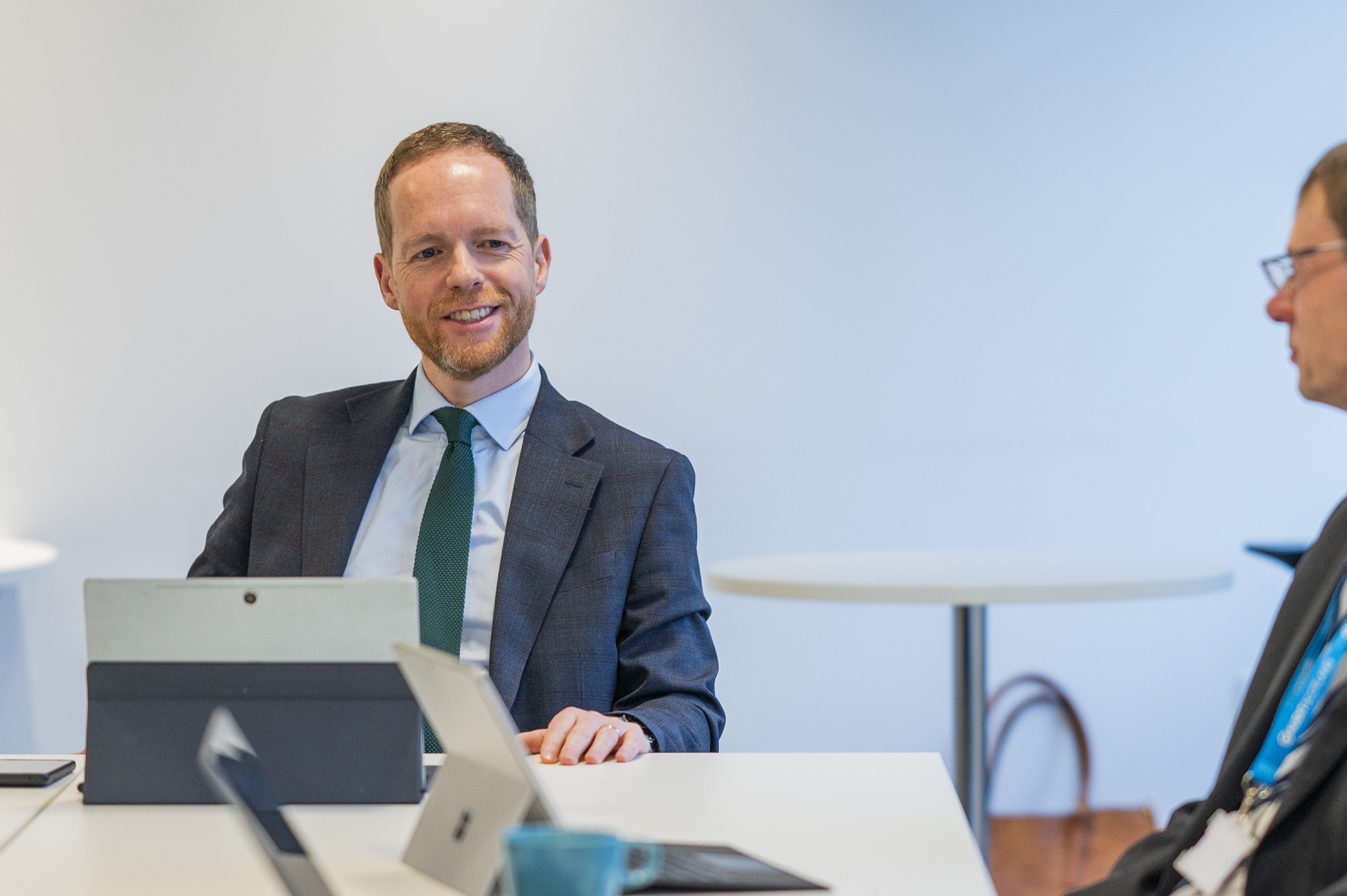
Stephen Boyle CA
Education
Studied accountancy and finance at Glasgow University
1997
Trains with PwC, qualifying as fellow of Chartered Institute of Public Finance and Accountancy in 2001
2002
Moves to Audit Scotland as Senior Auditor, later promoted to Audit Manager
2007
Appointed Financial Analysis Manager at Scottish Housing Regulator, followed by Head of Finance and Corporate Services at Cube Housing Association, before moving to Glasgow HA as Assistant Director of Finance in 2010
2013
Returns to Audit Scotland as Audit Director
2020
Appointed to Auditor General for Scotland
He switched back to finance in 1988, though, joining the fledgling Aberdeen Asset Management, and developing its private client trust and charity business as CEO. When that part of the business was sold to Brewin Dolphin in 2006, he developed a variety of roles in transport, IT, education, tourism, economic development – and public audit.
Crosby believes that his achievements can be traced back to his upbringing. “My father grew up in the Borders. He was orphaned by the time he was 16, so he had a difficult childhood,” he says. “I think most people would say he did well. He had three boys, of which I was the youngest. And to repay him, I wanted to do at least as well as he did. I was driven by the desire to repay the investment he made in me.”
“If nothing’s changing, something’s probably wrong. We need to be on the front foot – always evolving”
Colin Crosby CA, Chair
He now relishes the contribution he can make as Chair of Audit Scotland: “The beauty of the non-exec role is that you’re closer to the behind-the-scenes work. For me, that’s where the fun is – asking the ‘daft laddie’ questions, quietly challenging the executive team, encouraging them to stay ambitious and refresh their thinking.
“Stephen and I both want to make an impact, but from slightly different angles. He focuses on the professional execution of the work and I focus on accountability – making sure we’re connecting with those we serve. I remember a lecture during my accountancy training that stuck with me. It was about knowing who your audience is. For us, that’s not just the institutions we work with – it’s the public. So Stephen and I are very well aligned. We both want Audit Scotland to be impactful and trusted. We also have a good bit of humour between us, which makes the work all the more enjoyable.”
Mind the gap
Boyle and his teams are responsible for auditing more than £60bn of public spending. “My independence gives us the freedom to choose what we audit, especially on the value-for-money side,” says Boyle. “We don’t steer away from difficult messages and one of my recurring messages has been the need for fundamental change in how public money is spent.
“Scotland’s financial forecasts show that demand is rising faster than resources – and the system isn’t sustainable in its current form. There’s potentially a £2bn funding gap – maybe more, depending on UK government decisions that impact devolved budgets. We’ve seen incremental change, but not enough to truly shift the model. We haven’t been good at stopping things that no longer serve their purpose.” (Boyle will be speaking at the ICAS forum, Scotland’s Fiscal Future, in June.)
He switched back to finance in 1988, though, joining the fledgling Aberdeen Asset Management, and developing its private client trust and charity business as CEO. When that part of the business was sold to Brewin Dolphin in 2006, he developed a variety of roles in transport, IT, education, tourism, economic development – and public audit.
Crosby believes that his achievements can be traced back to his upbringing. “My father grew up in the Borders. He was orphaned by the time he was 16, so he had a difficult childhood,” he says. “I think most people would say he did well. He had three boys, of which I was the youngest. And to repay him, I wanted to do at least as well as he did. I was driven by the desire to repay the investment he made in me.”
“If nothing’s changing, something’s probably wrong. We need to be on the front foot – always evolving”
Colin Crosby CA, Chair
He now relishes the contribution he can make as Chair of Audit Scotland: “The beauty of the non-exec role is that you’re closer to the behind-the-scenes work. For me, that’s where the fun is – asking the ‘daft laddie’ questions, quietly challenging the executive team, encouraging them to stay ambitious and refresh their thinking.
“Stephen and I both want to make an impact, but from slightly different angles. He focuses on the professional execution of the work and I focus on accountability – making sure we’re connecting with those we serve. I remember a lecture during my accountancy training that stuck with me. It was about knowing who your audience is. For us, that’s not just the institutions we work with – it’s the public. So Stephen and I are very well aligned. We both want Audit Scotland to be impactful and trusted. We also have a good bit of humour between us, which makes the work all the more enjoyable.”
Mind the gap
Boyle and his teams are responsible for auditing more than £60bn of public spending. “My independence gives us the freedom to choose what we audit, especially on the value-for-money side,” says Boyle. “We don’t steer away from difficult messages and one of my recurring messages has been the need for fundamental change in how public money is spent.
“Scotland’s financial forecasts show that demand is rising faster than resources – and the system isn’t sustainable in its current form. There’s potentially a £2bn funding gap – maybe more, depending on UK government decisions that impact devolved budgets. We’ve seen incremental change, but not enough to truly shift the model. We haven’t been good at stopping things that no longer serve their purpose.” (Boyle will be speaking at ICAS’ forum, Scotland’s Fiscal Future, in June.)
Colin Crosby CA
Education
Studied accountancy and finance at Glasgow University
1976
Trains with KPMG, qualifying in 1979
1981
Qualifies as a lawyer
1983
1985
1988
Made Director, Aberdeen Fund Managers
1994
2002
2008–present
2020
Joins the board of Audit Scotland, becoming Chair in 2024
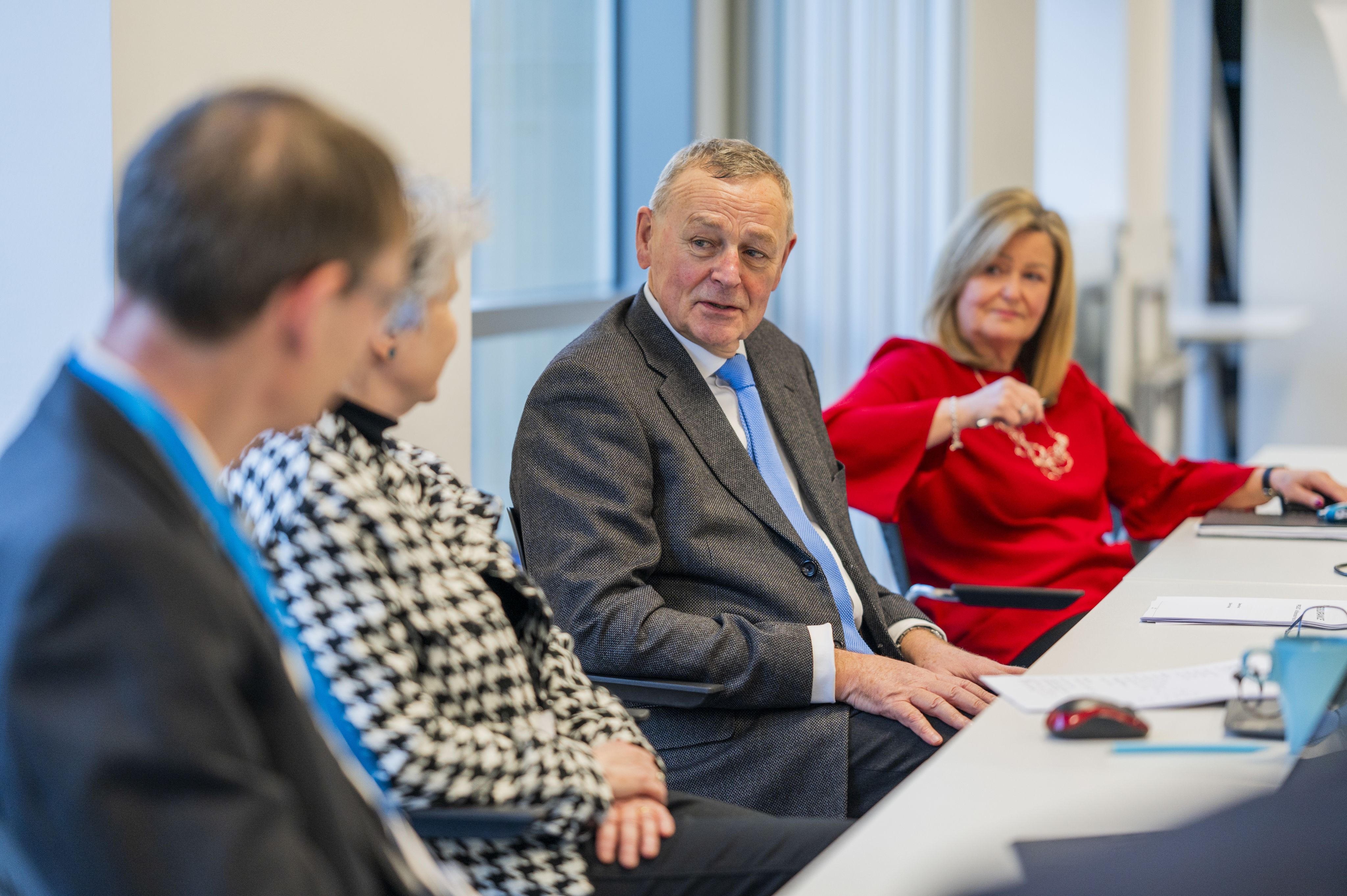
Colin Crosby CA
Education
Studied accountancy and finance at Glasgow University
1976
Trains with KPMG, qualifying in 1979
1981
Qualifies as a lawyer
1983
1985
1988
Made Director, Aberdeen Fund Managers
1994
2002
2008–present
2020
Joins the board of Audit Scotland, becoming Chair in 2024
“That has to change – and fast. There are some positive examples, such as Registers of Scotland digitising its approach to title deeds, and Disclosure Scotland moving fully online. But we need much more of that across the board. To be sustainable, public services need to adopt digital tools, make better use of their estates and embrace modern ways of working. The positive news is that, in the past six months, there’s been a noticeable shift in urgency from ministers. We’re hopeful that a clear plan is coming soon.”
Crosby adds: “I’m always struck by how people draw a sharp line between the public and private sectors. But actually, we need to tackle many of the same issues, such as technology, talent, delivery and funding. A priority for me at Audit Scotland is embedding a culture of constant change. My background includes being employee number 12 at what became Aberdeen Asset Management plc. Change was the norm there, not the exception, and that stuck with me. If nothing’s changing, something’s probably wrong. We need to be on the front foot – always evolving.”
It’s fitting, therefore, that under Boyle’s leadership Audit Scotland has embraced a wide-ranging modernisation project. Due to be completed by the end of the year, it includes investment in AI, automation, data analytics and new software, plus changes to audit methodology.
“But modernisation isn’t just about technology,” says Boyle. “It’s also about supporting our people. We’re investing in training and development because we’ve seen too many digital projects fail where users weren’t involved early enough. We’re making sure our teams are part of the process – and equally, that the bodies we audit are ready for these changes. A successful audit depends on both sides working together.”
That talent pipeline is also now boosted by a school-leaver programme, modern apprenticeships and an emphasis on social mobility. “It’s a great development path and we’re laying the right foundations, but there’s still more to do,” says Boyle. “We’re always open to ideas on this front, and feedback on the work of Audit Scotland, so please do get in touch if you can help.”
Meanwhile, Boyle hasn’t entirely given up on the Hampden dream. “It won’t be me though – my son’s a far better footballer than I ever was.”
The ICAS connection
Audit Scotland places a high value on ICAS training. The organisation currently has around 40 trainee CAs on board (with a further 15 set to join this summer), as well as 73 qualified CAs. “We’re very involved in the public sector audit space within the ICAS technical teams, and the relationship is growing,” says Crosby. “They want to learn from us, and we want to learn from them.”
Although Boyle trained as a chartered public finance accountant, he has been keen to nurture the relationship with ICAS. “One of the biggest benefits has been the structure of the training, which fits well with our audit scheduling. We’ve also seen ICAS evolve its syllabus to develop exactly the sort of skills we need in areas such as scepticism and technology. It’s a mutually beneficial relationship because we attract great school-leavers and graduates to our training programme. Many come because they want to become CAs, but they also want to make a difference – to see public money well spent and services improve.”
Crosby was also a trustee of the ICAS Foundation, stepping down only to avoid any conflicts with his Audit Scotland role. “It’s a cause I really care about,” he says. “I’ve always believed in equal opportunity and the ICAS Foundation helps young people from all backgrounds into university, internships and training contracts. The scholarships help, but the real value is in the mentoring.
“We’ve seen ICAS evolve its syllabus to develop exactly the sort of skills we need in areas such as scepticism and technology – it’s a mutually beneficial relationship”
“Watching someone from a disadvantaged background come through the system and succeed is incredibly rewarding. But one frustration is how underfunded the foundation is. If there are 25,000 CAs out there and they each contributed £10 a month, it would have £3m a year to support students. That could change so many lives.”
Learn more about the ICAS Foundation and donate
ADVERTISEMENT
